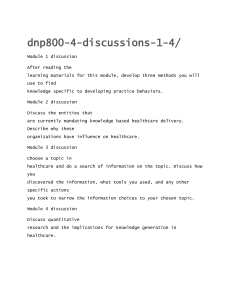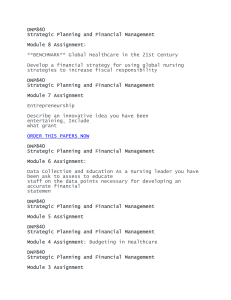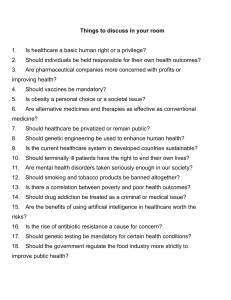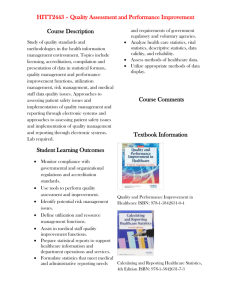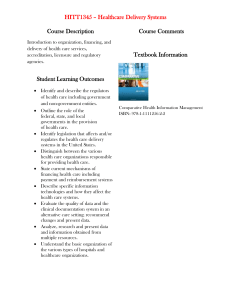Financial Management of Healthcare
advertisement
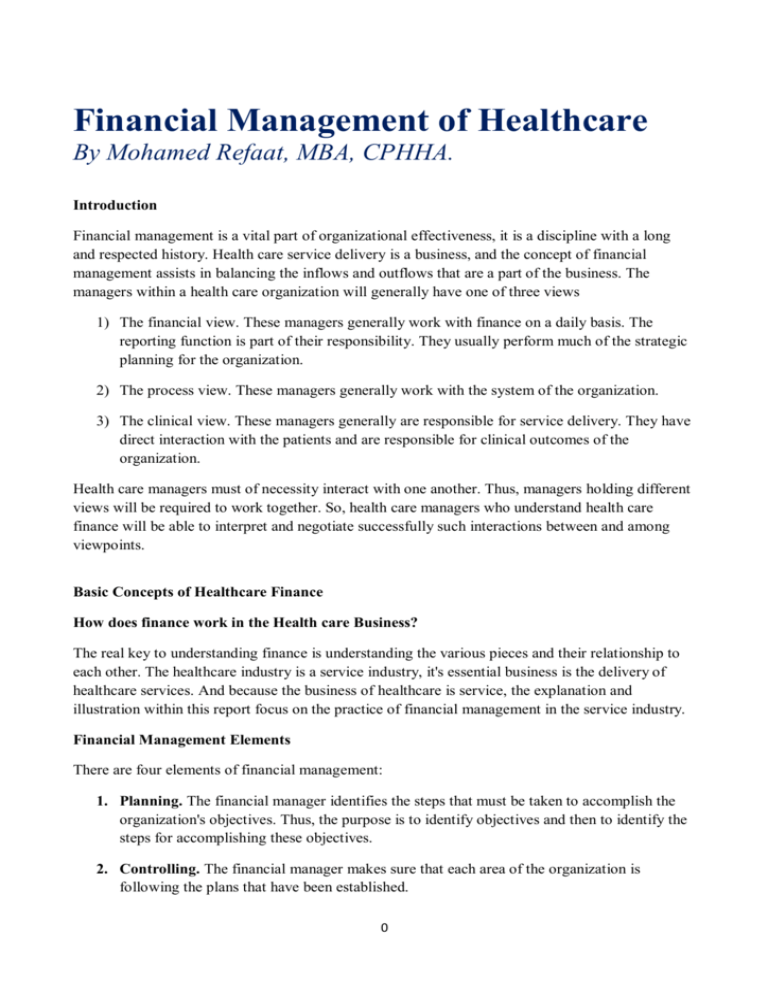
Financial Management of Healthcare By Mohamed Refaat, MBA, CPHHA. Introduction Financial management is a vital part of organizational effectiveness, it is a discipline with a long and respected history. Health care service delivery is a business, and the concept of financial management assists in balancing the inflows and outflows that are a part of the business. The managers within a health care organization will generally have one of three views 1) The financial view. These managers generally work with finance on a daily basis. The reporting function is part of their responsibility. They usually perform much of the strategic planning for the organization. 2) The process view. These managers generally work with the system of the organization. 3) The clinical view. These managers generally are responsible for service delivery. They have direct interaction with the patients and are responsible for clinical outcomes of the organization. Health care managers must of necessity interact with one another. Thus, managers holding different views will be required to work together. So, health care managers who understand health care finance will be able to interpret and negotiate successfully such interactions between and among viewpoints. Basic Concepts of Healthcare Finance How does finance work in the Health care Business? The real key to understanding finance is understanding the various pieces and their relationship to each other. The healthcare industry is a service industry, it's essential business is the delivery of healthcare services. And because the business of healthcare is service, the explanation and illustration within this report focus on the practice of financial management in the service industry. Financial Management Elements There are four elements of financial management: 1. Planning. The financial manager identifies the steps that must be taken to accomplish the organization's objectives. Thus, the purpose is to identify objectives and then to identify the steps for accomplishing these objectives. 2. Controlling. The financial manager makes sure that each area of the organization is following the plans that have been established. 0 3. Organizing. The financial manager decides how to use the resources of the organization to most effectively carry out the plans that have been established. 4. Decision making. The financial manager makes choices among available alternatives. All types of decision making rely on information, and the primary tasks are analysis and evaluation. Thus the purpose is to make informed choices. 1
